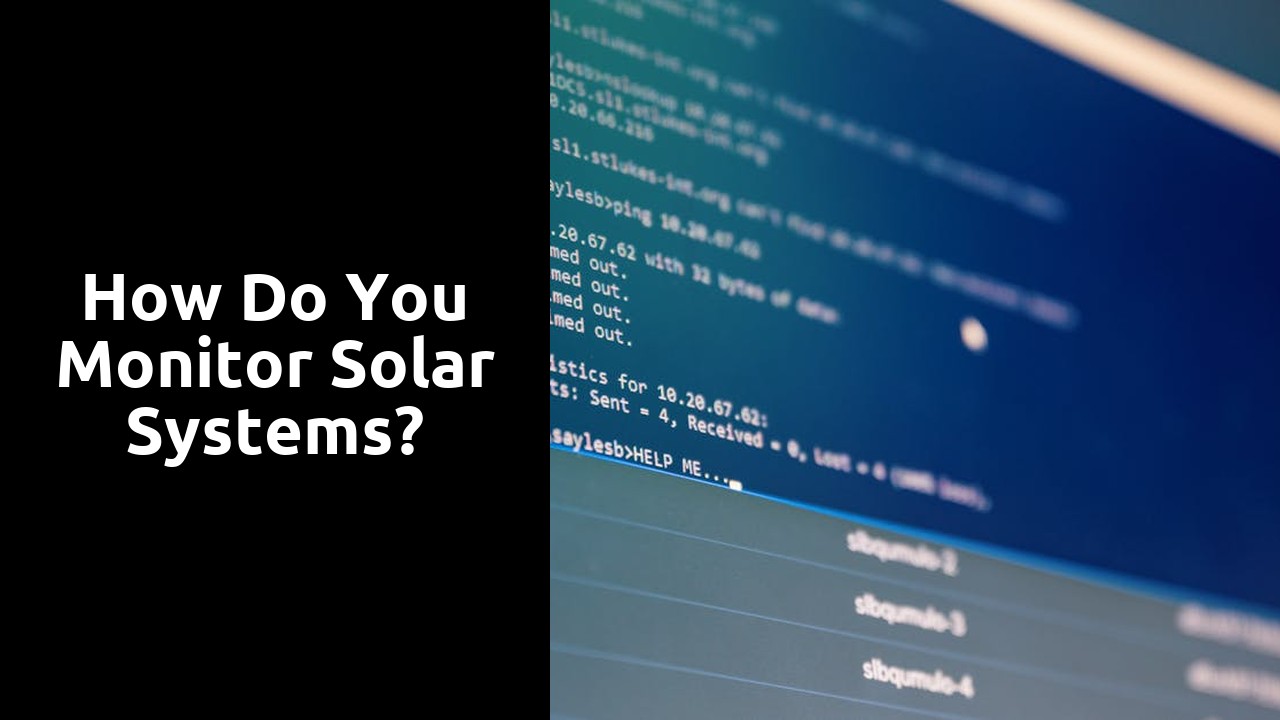
Table Of Contents
Weather Impact Assessment
Weather impact assessment is a crucial aspect of monitoring solar systems. In Australia, where weather conditions can vary significantly, it is essential to understand how different weather patterns affect the performance of solar systems. Solar hot water system monitoring and analysis allow us to track the impact of weather changes on energy production. By collecting data on sunshine hours, temperature fluctuations, and precipitation levels, we can gain insights into the overall efficiency of the solar system.
Monitoring solar system performance during various weather conditions provides valuable information for optimising energy consumption. By studying how the system operates during sunny days, cloudy periods, and rainy weather, we can adjust our energy usage accordingly. This data-driven approach ensures that we make the most of our solar resources while minimising wastage. Solar system diagnostics through weather impact assessment enable us to identify and troubleshoot potential issues that may arise due to external factors like weather fluctuations.
Monitoring Solar System Performance During Different Conditions
Solar Hot Water System Monitoring and Analysis is a crucial aspect of ensuring efficient performance regardless of weather conditions. By regularly observing the system's output and tracking variations in energy generation during sunny and overcast days, homeowners can optimise their energy consumption patterns. This monitoring not only provides insights into how the system is performing under different circumstances but also allows for adjustments to be made to usage patterns to maximise the benefits of solar energy.
Additionally, Solar Hot Water System Monitoring and Analysis enables users to identify any potential issues that may arise during extreme weather events such as storms or heatwaves. By closely monitoring the system's performance in real-time and comparing it to historical data, homeowners can detect abnormalities and take proactive measures to address them before they escalate into more significant problems. This proactive approach not only ensures the longevity of the solar system but also helps in maintaining its efficiency over the long term.
Optimising Energy Consumption
Solar hot water system monitoring and analysis are essential components for optimizing energy consumption in households. By closely tracking the performance of the solar system, homeowners can make informed decisions about adjusting their energy usage to align with the output of the system. This ensures that energy is utilized efficiently, leading to cost savings and reduced environmental impact.
Regularly monitoring the solar system allows for real-time assessment of energy production, enabling homeowners to adapt their energy consumption accordingly. By being mindful of when the system is generating the most energy, such as during peak sunlight hours, residents can schedule energy-intensive tasks like laundry and dishwashing to coincide with these periods. This strategic approach maximizes the utilization of solar energy, reducing reliance on the grid and contributing to a more sustainable energy consumption pattern.
Adjusting Usage Based on Solar System Output
When it comes to adjusting your energy consumption based on the output of your solar system, it is crucial to monitor consistently. By keeping a close eye on the performance of your solar system, you can make informed decisions on when and how to modify your energy usage. Solar Hot Water System Monitoring and Analysis is an excellent way to track the efficiency of your solar system, helping you understand how much energy is being generated, when it is at its peak, and when adjustments may be necessary.
By utilising the data gathered through Solar Hot Water System Monitoring and Analysis, you can optimise your energy consumption patterns accordingly. This could involve shifting high-energy consuming activities to times when your solar system is producing the most energy or even considering energy storage solutions for times when solar production is lower. Adjusting your energy usage based on your solar system output allows you to make the most of your system's capabilities while also contributing to a more sustainable and efficient energy consumption lifestyle.
Solar System Diagnostics
Solar system diagnostics play a vital role in ensuring the efficient functioning of solar energy systems. Regular monitoring and analysis of the system help in identifying any potential issues that may hinder the system's performance. This involves tracking the energy output, inspecting the components for wear and tear, and assessing the overall health of the system. The data collected through diagnostics enable technicians to pinpoint any anomalies and address them promptly.
One critical aspect of solar system diagnostics is the monitoring and analysis of solar hot water systems. By keeping a close eye on the performance of the solar hot water system, it becomes possible to detect any inefficiencies or malfunctions early on. This proactive approach not only ensures the system operates optimally but also minimises the risk of costly repairs down the line. Implementing regular Solar Hot Water System Monitoring and Analysis is key to maximising the efficiency and longevity of the solar energy system.
Identifying and Troubleshooting Potential Issues
In the realm of solar system maintenance, identifying and troubleshooting potential issues is a crucial aspect to ensure the optimal performance and longevity of your system. Regular monitoring and analysis play a key role in this process. Solar Hot Water System Monitoring and Analysis involves keeping a close eye on system parameters such as water temperature, pressure, and flow rates. This helps in detecting any anomalies early on, which may indicate underlying issues that need immediate attention.
Moreover, troubleshooting potential problems in a timely manner can prevent more significant issues from arising in the future. By conducting regular checks and analyses as part of Solar Hot Water System Monitoring and Analysis, you can proactively address any deviations from the normal operating conditions. This may involve inspecting components for wear and tear, checking for leaks, or assessing the efficiency of the system overall. Implementing a comprehensive monitoring and troubleshooting protocol can enhance the reliability and performance of your solar hot water system.
FAQS
How can weather impact the performance of a solar system?
Weather conditions such as cloud cover, rain, and storms can affect the amount of sunlight reaching the solar panels, thereby impacting the system's energy production.
What are some ways to monitor solar system performance during different conditions?
Monitoring tools such as solar inverters and data loggers can track energy production levels, allowing users to assess how their system is performing in various weather conditions.
How can one optimise energy consumption with a solar system?
By analysing the energy production data from the solar system, users can adjust their energy usage patterns to align with peak solar generation times, maximising the use of solar energy.
What steps can be taken to adjust usage based on solar system output?
Users can schedule high-energy tasks, such as running appliances or charging electric vehicles, during times of peak solar energy production to make the most of the free, renewable energy source.
How can solar system diagnostics help in identifying and troubleshooting potential issues?
Regular monitoring of solar system performance can help detect any deviations in energy production, which could indicate issues such as shading, panel malfunctions, or wiring problems that need to be addressed promptly.
